Commercial real estate technology: New trends and top companies
Technology is changing the way CRE professionals and companies operate, connecting the industry in ways not previously possible.

Advances in technology are shaking up every industry—and commercial real estate is no exception. In this article, we take a look at some top commercial real estate technology trends, as well as the companies and must-use platforms shaking up the market.
Commercial real estate technology
Defining “commercial real estate technology” is no easy task. In fact, it’s really a futile effort given how dynamic the CRE tech industry has become. But essentially, when we talk about commercial real estate technology, we’re talking about both the software and hardware that has made it easier for commercial real estate professionals to complete their jobs on a day-to-day business. From prospecting to leasing, from conducting due diligence on a property to leasing.
We begin by taking a look at the CRE technology trends shaping the commercial real estate industry today, and then take a deeper dive into the specific companies and products that are disrupting an otherwise “traditional” industry. It used to be that “artificial intelligence” was something you’d expect to find only in one of the Matrix movies, but that’s no longer the case. AI has taken the world by storm and is slowly integrating every facet of our lives.
This is especially true in commercial real estate, where AI has made it easier for commercial real estate professionals to navigate the realm of big data. For instance, AI has led to an explosion of online platforms that offer increasingly detailed and machine-learned analysis for sales, services, and property management.
Commercial real estate technology trends
It used to be that “artificial intelligence” was something you’d expect to find only in one of the Matrix movies—but that’s no longer the case. AI has taken the world by storm and is quickly integrating every facet of our lives. This is especially true in commercial real estate, where AI has opened new opportunities for CRE professionals looking to excel in the industry.
Here are some of the top CRE tech trends to keep an eye on:
Property intelligence is impacting efficiency on company-wide levels.
Machine-learning is making CRE more profitable.
The Internet of Things is making data more available to decision-makers.
Software advancements are making leasing more efficient.
AR/VR is making life easier for investors, contractors, project managers, and brokers.
1. Property intelligence is impacting efficiency on company-wide levels.
Property intelligence has risen as a driver of new business for all kinds of CRE companies, as well as for non-CRE companies looking to do business with property owners. Platforms like Reonomy are offering property intelligence to enable teams to win more business—from full brokerages, to lending entities, roofing contractors, solar installers, and much more.
The idea behind property intelligence is to bring companies all the intel they need on properties and owners in a flicker of time.
As opposed to the painstaking process of gathering public records, companies can quickly tap into a property intelligence source to analyze the ownership, sales history, debt history, tenant breakdown, tax, and more on a multifamily or commercial property.
It’s completely transforming company-wide levels of efficiency when it comes to identifying new, high-quality prospects, analyzing those prospects, and getting in contact with them.
2. Machine-learning is making CRE more profitable:
AI has enabled software developers to create a breadth of new software programs to perform tasks that once required human intelligence. These programs continue to self-improve with use, making them all the more valuable to companies over time. For example, there are now software programs that can identify missing or incomplete document information (such as on leases, nondisclosures, and partnership agreements). Machine-learning has also made it possible to automate tasks like drafting proposals or submitting offers.
This frees up CRE professionals to spend their time on drumming up new business and closing deals, instead of wading through stacks of paperwork.
3. The Internet of Things is making data more readily available to decision-makers
The internet of things (IoT) is a massive network that enables every day objects to collect and share data—and it’s transforming how CRE professionals make key decisions. By way of example, smart sensors can monitor a property’s energy use and based upon this data, a building owner can decide whether to invest in something like solar panels. IoT-enabled security systems provide real-time monitoring and can direct building managers to security, maintenance and repair issues even before tenants report a problem.
We’re even seeing retails and their property managers use IoT enabled devices to monitor consumers’ walking patterns and shopping habits, which is useful information for building owners as they consider repositioning their properties.
4. Software advancements are making leasing more efficient
By and large, most leasing brokers are still doing business the same way their predecessors were doing business decades ago. For instance, leasing an apartment would typically require phone/email coordination, scheduling a time to meet at the property, an in-person tour that both the prospective tenant and property manager must attend, and the physical exchange of printed documents.
It’s a burdensome process—but no longer needs to be, thanks to advances in hardware and software. New CRE software allows people to schedule a tour online. The property manager gets this request and then, when the person arrives to tour the unit, the property manager can automatically send a code to them that will unlock the door. The unique code prevents others from accessing the unit, and it is time sensitive so it can only be used for a short period of time before the code expires. The smart lock can sense when someone enters and leaves the unit, and the accompanying software can notify the property manager accordingly.
If the prospect wants to lease the unit, another software application can be used to facilitate the entire process, including the background check, reference check, and signing of the lease.
5. AR/VR is making life easier for investors, contractors, project managers, and brokers
Augmented and virtual reality are finally taking hold of the commercial real estate industry. AR/VR technology provides investors with the opportunity to view properties without time-consuming and expensive travel between locations, which has opened the doors to investors looking to buy CRE in more distant markets. Contractors can use AR/VR technology during the design and construction phase of a project. Project managers can use AR/VR to check in on new construction and/or like tenant improvement projects without conducting physical site visits.
Lastly, we’re seeing more sales and leasing brokers use AR/VR equipment to take prospects on a virtual tour of the property – which expands the pool of buyers and helps brokers sell properties in less time.
CRE tech companies
There is no shortage of CRE tech companies that have sprung up in recent years. Some take the form as software programs, others are physical products that CRE professionals can use to streamline their day-to-day activities. Here are a few of the more innovative CRE tech companies and products, grouped by category:
Prospecting technology
Reonomy
If you’re looking for CRE tech to help you source leads and win new business, the Reonomy web app might be what you’re looking for. Reonomy allows commercial real estate professionals of any kind to discover potential new business in any U.S. market. Commercial real estate leads can be found by searching for properties with a variety of search filters.
Filters include:
Location
Asset Type
Building and Lot
Ownership
Sales History
Debt History
Tenants
Tax History
You can identify properties with any combination of the filters, then quickly dive into researching those properties in great depth. You research the sales and debt history of a property to gauge whether the owner is likely to sell, buy, or refinance. Then, you can access owner contact information in just a few more clicks, including seeing the members and contact info of LLC members.
All of this is accessible in the Reonomy Platform, allowing CRE professionals of all kinds to discover new leads and win new business in ways previously unavailable in the industry.
AscendixRE
AscendixRE is a CRM program layered onto Salesforce and Dynamics 365 and has been designed specifically with CRE brokers in mind. It offers a robust deal, pipeline, property and contact management, stacking plans, commission splits, extensive mapping tools and more – all accessible via a mobile app, making it easier than ever for brokers to prospect and run their business.
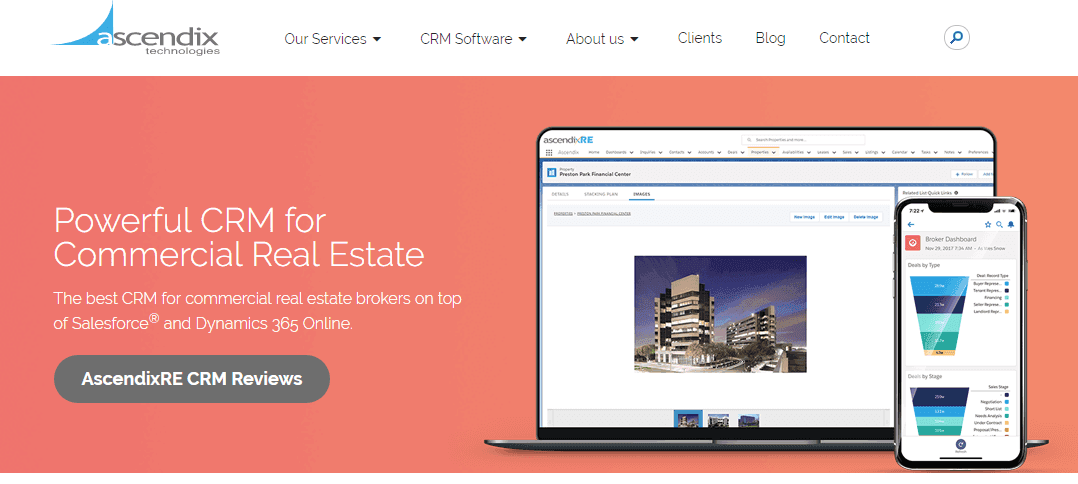
Aurora Solar
Aurora Solar is a favorite among commercial solar companies looking to drum up new business. This solar proposal software allows users to design and quote solar systems remotely. The resulting proposals integrate design and financial feasibility, resulting in reliable estimates as to the financial returns a customer might reasonably expect if they were to move forward.

Project management technology
Honest Buildings
Honest Buildings is a project management platform built specifically for commercial real estate owner. It provides unparalleled transparency and access to information for owners, general contractors and subcontractors. It allows users, particularly those with large portfolios, to easily access and exchange real-time data on capital projects, contracts, and more.
BuildingConnected
BuildingConnected provides builders with cloud-based bid procurement services. The CRE tech company’s suite of products includes BC Pro, which assists with invitations to bid, bid analytics and bid leveling. It also includes TradeTapp, which allows users to qualify subs through automated analysis and recommendations to mitigate risks in advance.
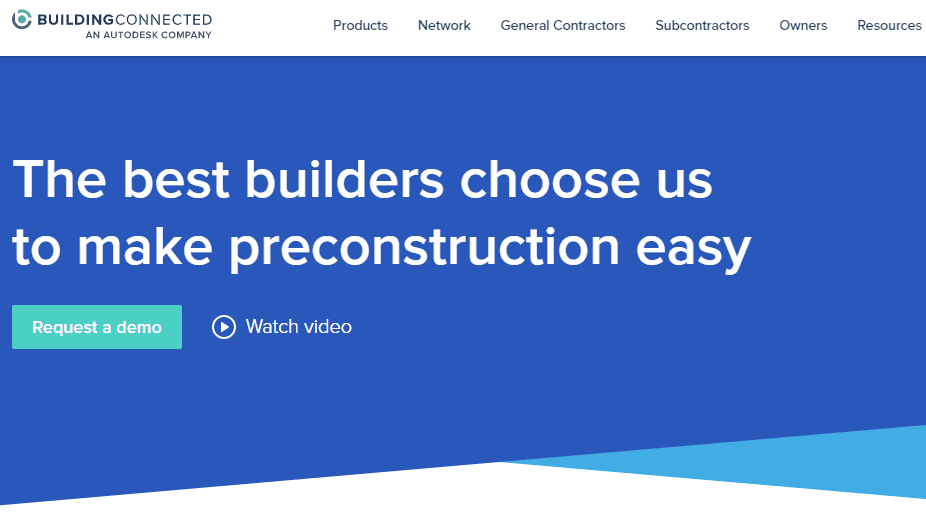
Building technology
Latch
Latch is a smart-lock startup company. Its smart locks allow users to unlock a property’s door from their smartphone. The hardware also allows users to send guest access codes, which makes this product easier for leasing and sales brokers to show units without having to be physically present. The locks can also be used to facilitate contractor access, which makes it easier for property managers to tend to repair and maintenance requests on short notice.
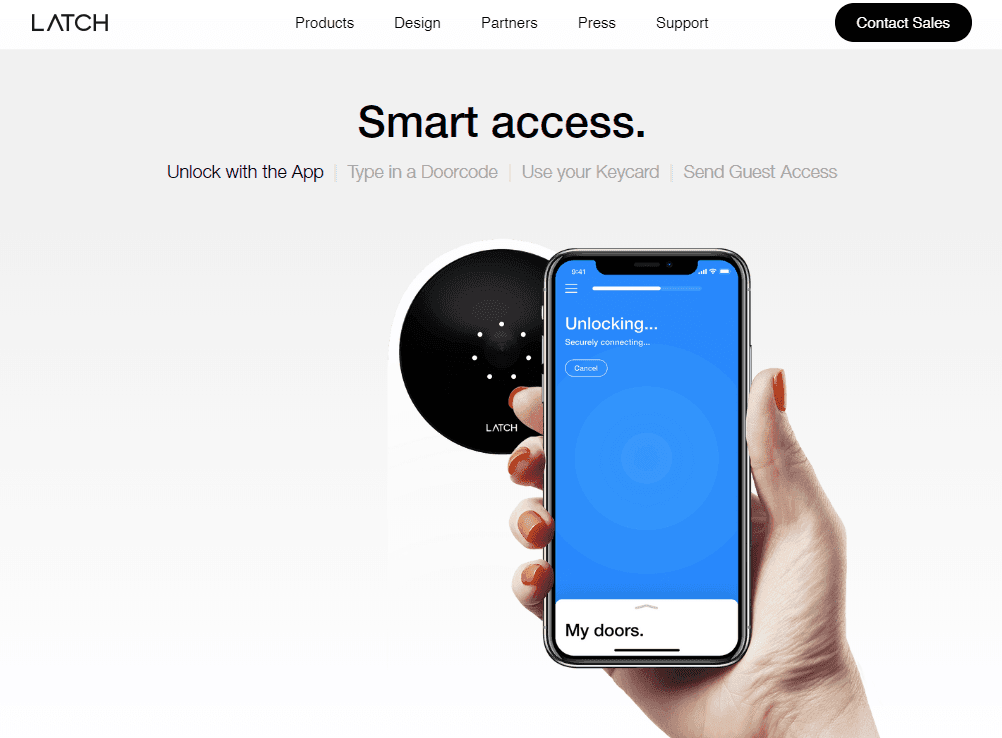
Mach Energy
Mach Energy is a modern energy management software for commercial buildings. This CRE tech company provides intuitive, mobile analytics and powerful reporting tools to make CRE professionals’ jobs easier and increase building value. Other features include an automated tenant billing software, energy forecasting and reporting, ENERGY STAR integration and more.
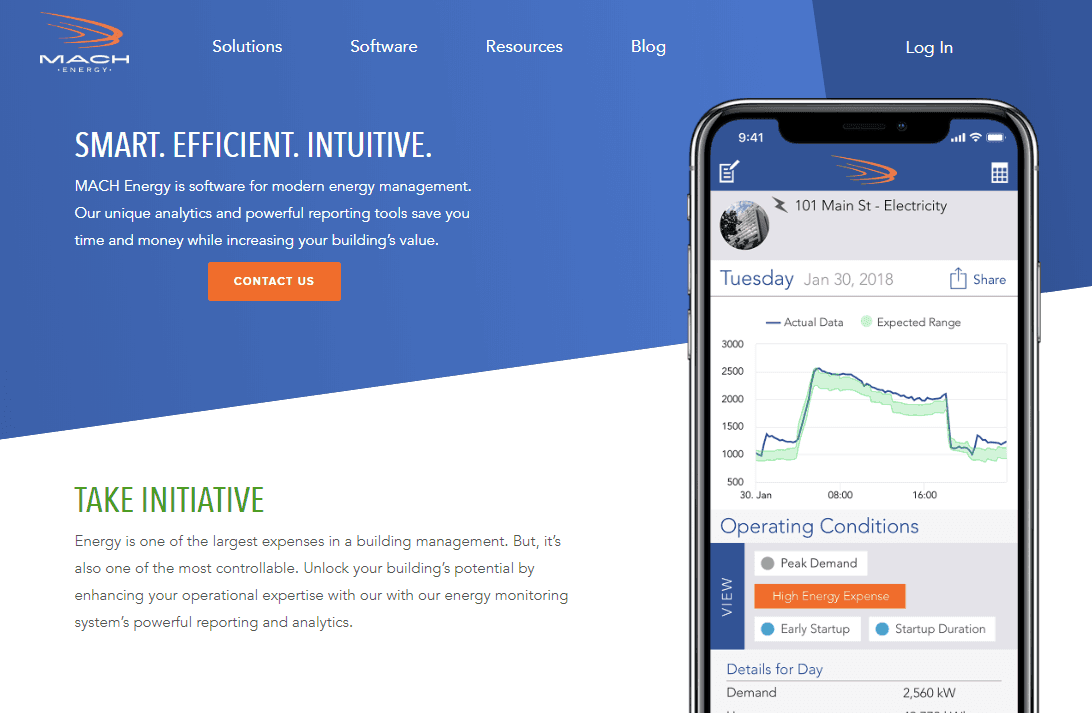
Leasing/sales technology
VTS
VTS is a CRE tech company that gives asset managers and leasing teams a single, cloud-based platform to track deals, manage space, and collaborate seamlessly.
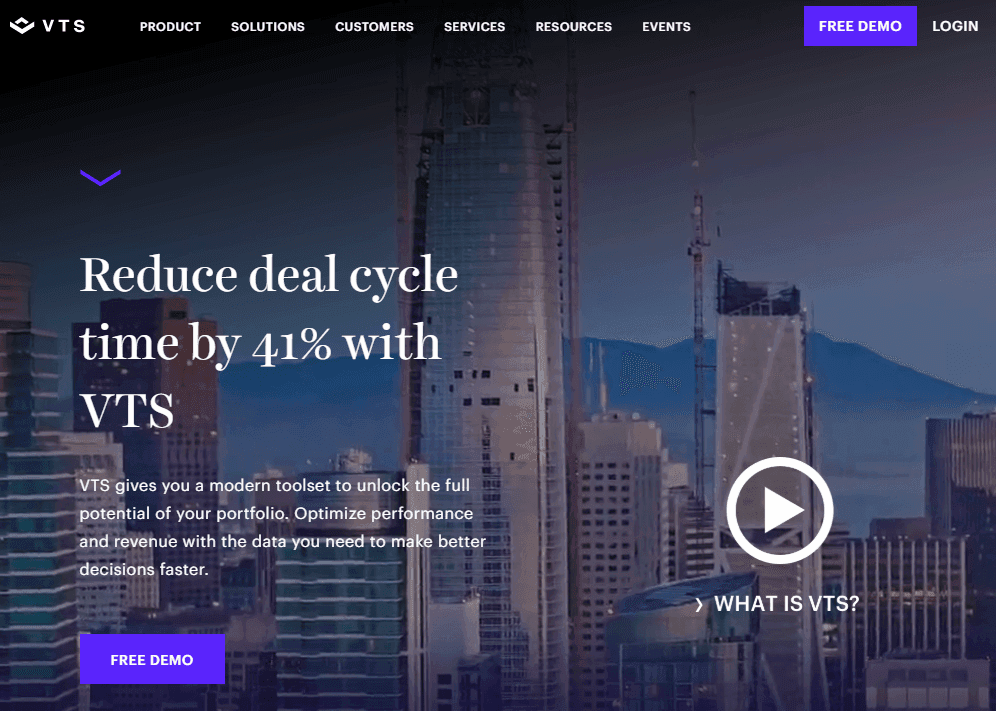
LEVERTON
LEVERTON bills itself as the only true AI-powered data extraction platform for corporate documents. The software can also translate documents into 30+ languages with remarkable accuracy, which helps brokers looking to lease or sell properties to international buyers.
AR & VR
Oculus Rift
Oculus Rift is the physical AR/VR headset that many CRE companies are investing in. It was once popular among the gaming community, but Oculus Rift is increasingly used by investors, contractors, brokers and more.
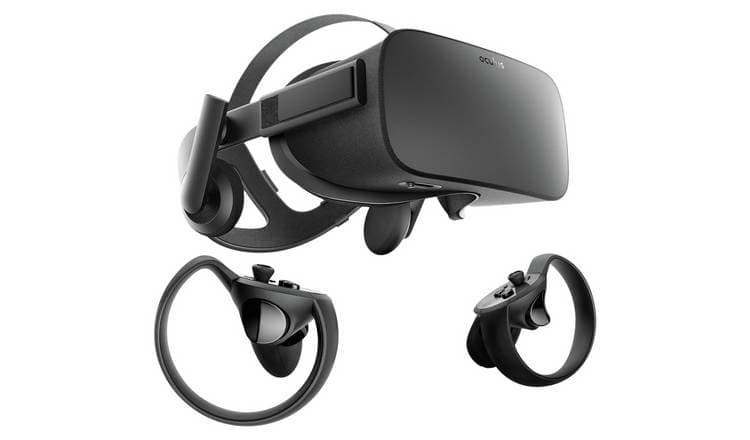
Floored/CBRE Build
Floored was a venture-backed commercial real estate technology company focused on visualizing space in 3D. The startup was recently acquired by CBRE and has recently been since been rebranded as CBRE Build. One of its tools, Floored Plans, is a dynamic space planning tool that allows brokers, owners and tenants to space plan office floors and walk through those space in 3D. A second product, Floored Build, allows any type of space to be brought to life and experienced through an interactive 3D model.
Author

Reonomy
Resources team
Author

Reonomy
Resources team




